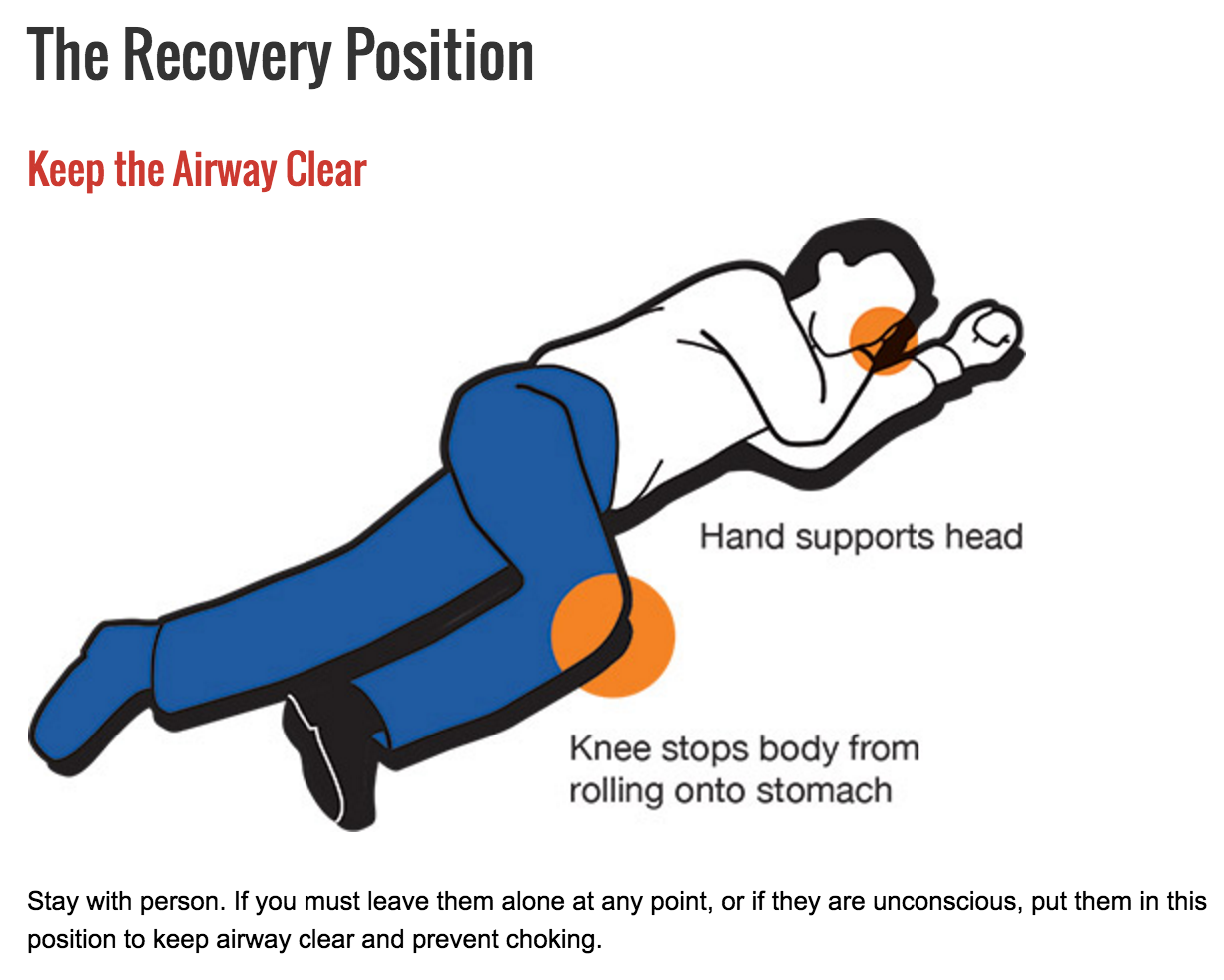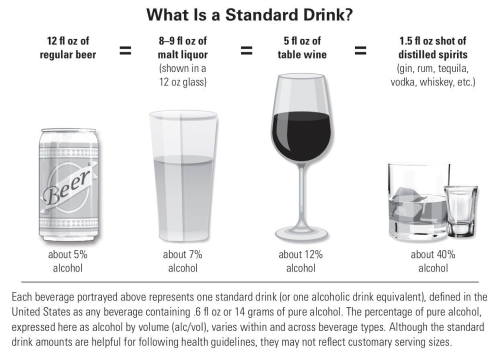If someone displays any of the following symptoms, they may be experiencing alcohol poisoning which can cause serious injury and/or death. Put the person in the Recovery Position and immediately call 911. Under Washington’s Good Samaritan Law, you and the person you call 911 for will not face legal consequences for underage or illicit substance/alcohol use when calling for emergency medical assistance, so make the call! It is dangerous to assume the person will be fine if they “sleep it off.”
Signs of alcohol poisoning:
- Unable to identify where/who they are: extreme confusion
- Unable to sit or stand by themselves
- Unable to remain conscious or awake
- Vomiting repeatedly
- Vomiting while unconscious
- Breathing slow or irregularly
- Cool, clamy, blue/green/purple skin, low body temperature: hypothermia
- Seizures
- You cannot wake the person
Use the RECOVERY POSITION, call 911, and stay with the person until emergency medical services arrive.
- Raise the person’s arm closest to you straight above the head. Straighten the leg closest to you. Bend the other leg at the knee and bring the other arm across the chest.
- Gently roll the person towards you, guarding their head from injury.
- Tilt the head to maintain airway. Tuck the nearest hand under the cheek to maintain head tilt.

The LiveWell Alcohol and Other Drugs Coordinator is a professional staff member available to work 1-1 with students around alcohol and other drugs. All appointments are free to UW Seattle students and can be scheduled below.
Alcohol and/or Other Drug (AOD) Consultations
Alcohol and/or Other Drug Consultations are for anyone who wants to learn more and reflect on their individual consumption behaviors of alcohol or other substances. Students can learn how college drinking norms or other substance use relates to their own individual behavior. Meetings incorporate information about use patterns, individual drinking cues, harm reduction skills, impacts on academics and athletic performance, strategies for relaxation and stress management, as well as resources for those interested in abstinence. To make a private, free appointment with the AOD Coordinator click below:
If you are being referred to meet with the Alcohol and Other Drugs Coordinator by Community Standards & Student Conduct, please schedule below:
Recovery Services
If you are looking for support and skills to begin or continue your recovery journey from alcohol and/or other substances, our AOD Coordinator can meet with you as a supportive and educational source of support and coaching.

